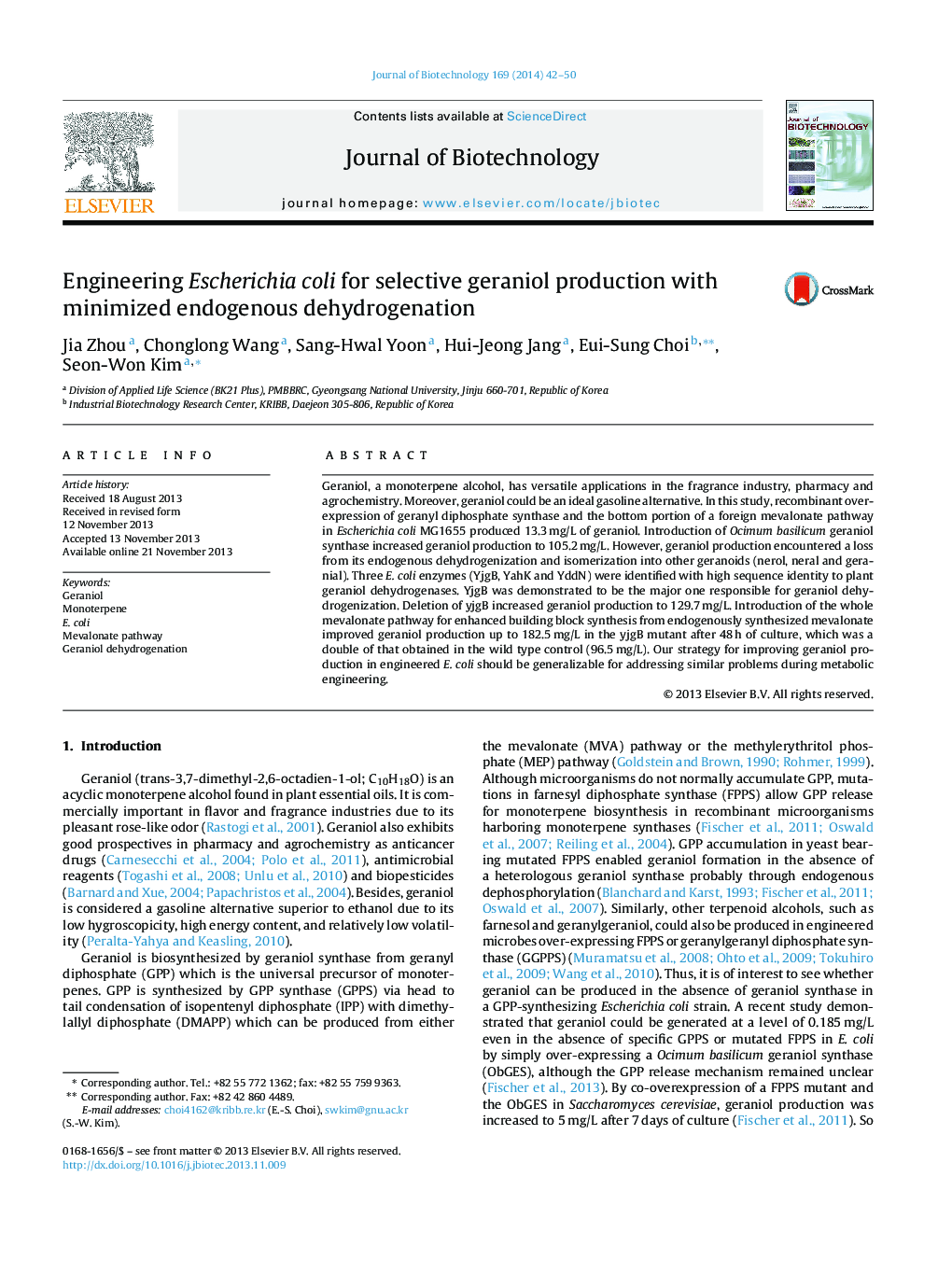| Article ID | Journal | Published Year | Pages | File Type |
|---|---|---|---|---|
| 23339 | Journal of Biotechnology | 2014 | 9 Pages |
•E. coli was engineered with a geraniol biosynthesis pathway.•Geraniol production was increased by enhancing geranyl diphosphate synthesis.•Geraniol dehydrogenation in E. coli was observed and its pathway was investigated.•Geraniol production was further improved by preventing geraniol dehydrogenation.•Final geraniol production of 183 mg/L was 5-fold higher than that reported in previous studies.
Geraniol, a monoterpene alcohol, has versatile applications in the fragrance industry, pharmacy and agrochemistry. Moreover, geraniol could be an ideal gasoline alternative. In this study, recombinant overexpression of geranyl diphosphate synthase and the bottom portion of a foreign mevalonate pathway in Escherichia coli MG1655 produced 13.3 mg/L of geraniol. Introduction of Ocimum basilicum geraniol synthase increased geraniol production to 105.2 mg/L. However, geraniol production encountered a loss from its endogenous dehydrogenization and isomerization into other geranoids (nerol, neral and geranial). Three E. coli enzymes (YjgB, YahK and YddN) were identified with high sequence identity to plant geraniol dehydrogenases. YjgB was demonstrated to be the major one responsible for geraniol dehydrogenization. Deletion of yjgB increased geraniol production to 129.7 mg/L. Introduction of the whole mevalonate pathway for enhanced building block synthesis from endogenously synthesized mevalonate improved geraniol production up to 182.5 mg/L in the yjgB mutant after 48 h of culture, which was a double of that obtained in the wild type control (96.5 mg/L). Our strategy for improving geraniol production in engineered E. coli should be generalizable for addressing similar problems during metabolic engineering.
